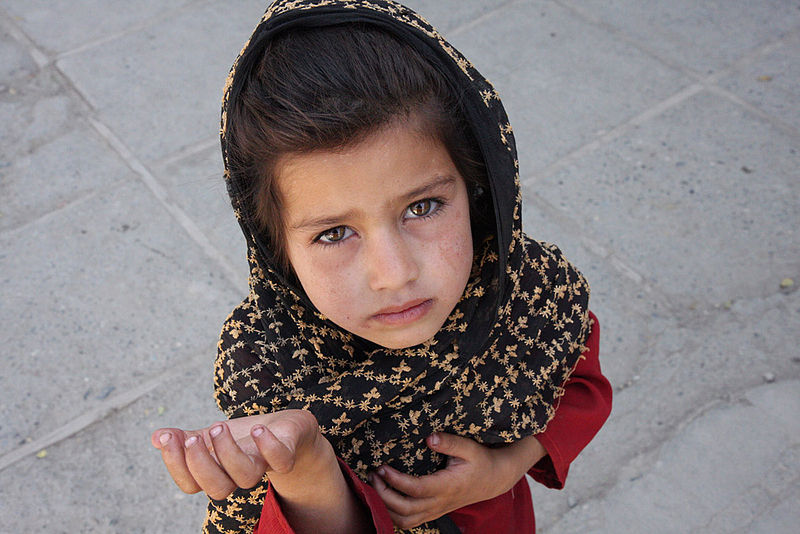米国で、最も高い収入を得ている人々と中産階級との格差が年々広がっていることは周知の事実だ。そのため、所得格差にどう対処するか、それに取り組むのかどうか、政党支持者への対応は待ったなしの状況だ。
[toggle]It’s well-established that the gap between the middle class and those who earn the highest incomes in the United States has grown wider over time, spurring partisan responses over how or whether to address income inequality. [/toggle]しかしこの問題には、クリスチャンにとって心配すべき一面がある。米国内の貧困層の多くがいっせいに教会を見放しているのだ。経済的に最も苦しい人々は、教会のコミュニティーから出ていくことで、社会的ネットワークや社会資源の恩恵も受けられず、それによって経済状態や今後の見通しをさらに悪化させてしまっている。
[toggle]But there’s a facet of this issue that should be particularly worrisome to Christians: Many of the poorest Americans are abandoning church en masse. By stepping away from church communities, the people who are most financially strapped also end up losing out on social networks and social capital—which can make their economic situation and outlook even worse. [/toggle]
(写真:Evstafiev)
私は宗教と社会経済的地位の関係を知るため、総合的社会調査(GSS)から、収入に応じて4つのグループに分け、「一度も宗教的な集会に出席したことがない」と言った人の割合を計算した(時代の移り変わりに応じて、このグループ分けは調整している)。その過去46年間の変化には目を見張るものがある。
[toggle]To test the relationship between religion and socioeconomic status, I took four income brackets (adjusted for inflation over the time) from the General Social Survey (GSS) and calculated the share that said they never attended religious services. The change over the last 46 years was stunning. [/toggle]1970年代、4つの収入グループ間の教会出席にはあまり差がなかった(約5%)。その差が大きく広がったのはこの40年の間で、ここ最近では顕著な差が出ている。2018年、最も裕福なグループで「礼拝に一度も出席したことがない」と言ったのはほぼ25%だったのに対し、いちばん低所得のグループで「教会のドアを開けたことがない」と言ったのは35%を超えていた。実質的には、礼拝出席の不平等は今や2倍だ。
[toggle]In the 1970s, the difference in church attendance among the four income groups was relatively small (about 5%). That gap has widened significantly over the last four decades, with a noticeable spike in recent years. In 2018, a quarter of the wealthiest Americans reported never attending services, while the share of those in the bottom bracket who never darkened a church door was over 35 percent. In essence, the inequality gap in attendance has now doubled. [/toggle]
富裕層と貧困層の差は、教会出席のほかでも大きく開いており、最も所得の低いグループの米国民は、自分のコミュニティーからの孤立を報告している。
[toggle]The growing social gap between the rich and poor extends beyond church attendance, as Americans in the lowest income bracket report being increasingly isolated from their own communities overall. [/toggle]友人や家族、隣人との前年の交流について、4つのGSSの質問を基にして、社会活動を測るためにグループ分けをしたが、1990年代半ばまでは、所得水準の違いによる大きな差はなかった。しかしそれ以降は、持てる者と持たざる者の間で、社会活動の間にも溝(みぞ)ができてしまっている。
[toggle]Based on four GSS questions about socializing with friends, family, and neighbors over the last year—grouped together as measure of social activity—there were no significant differences among the various income levels as late as the mid-1990s. But since that point, even social activity has become divided between the haves and have-nots. [/toggle]所得の最も多い人たちは、2000年以降さらに社交的になったが、最下部の人たちは急激に孤立を深めている。1996年には最上位と最下位の差はゼロだったのに、今や1・5ポイントの差がある。
[toggle]Those at the top of the income ladder have become even more social since 2000, while those at the bottom are rapidly becoming more isolated. While the gap between the top and the bottom was essentially zero in 1996, it’s reached 1.5 points. [/toggle]
概して、社会活動をあまりしない人たちは、礼拝に一度も出席したことがない。しかし、この変化の割合は注目に値する。
[toggle]By and large, people who have less active social lives are more likely to never attend a worship service, although the rates of change are noteworthy. [/toggle]考えてみてほしい。所得格差のいちばん下にいるグループの40%は、社会活動への参加が少ない上に、教会に一度も行ったことがないのだ。社会活動が活発な富裕層の2倍の割合にあたる。
[toggle]Consider this: 40 percent of individuals who are in the bottom quartile of the income spectrum and engage in few social activities never attend church. That’s twice the rate of someone in the top income bracket who has an active social life. [/toggle]
伝道的な観点で言えば、教会員にとって、低所得層の人と友人になって礼拝に誘うことがより難しくなっていることを示している。「貧しい人に福音を告げ知らせる」というイエスのメッセージがあるにもかかわらず、貧困層の人々は、クリスチャンが説く「幸いな人」の希望の教えから驚くべき速さで離れていってしまっているのだ。
[toggle]From an evangelical perspective, these trends suggest it may be getting more difficult for churchgoers to befriend those from the lowest socioeconomic class and bring them into their church communities. Despite Jesus’s message to “proclaim good news to the poor,” the poor increasingly find themselves apart from the Christians preaching the hope of the Beatitudes. [/toggle]これはまた、社会科学的観点から見ても大きな問題だ。霊的な教えや導きを与えることに加え、教会は市民にとって大切な社会的スキルを教えるのに最適な場所だからだ。教会ではよく人々に、イベントの企画やスモールグループのリード、予算作成の手伝い、ラリーの開催などを頼んだりする。教会は社会的ネットワークを広げ、スキルを教え、地域社会へ入っていくことを奨励する。それは仕事の世界においてとても価値のあることだ。
[toggle]It’s also incredibly troublesome from a social science perspective. In addition to offering spiritual teachings and guidance, churches are ideal places to gain civic skills. Oftentimes people will be asked to organize an event, lead a small group, help develop a budget, or put together a rally. Churches broaden social networks, teach skills, and encourage community involvement—which can be highly valuable in the world of work. [/toggle]以前出席していた教会では「人々のための祈り」の時間を持っていた。ある日曜日に若い父親が立ち上がって、「最近、職を失い、どうやって家族を養えばいいか」と言ったので、教会員は彼のために祈った。礼拝後、あるビジネスマンが「自分の店を手伝ってくれる人を探していた」と伝え、その場で仕事を提供したのだ。主の働きは謎(なぞ)に包まれているものだが、時に社会のネットワークを通して直(じか)に働かれる。
[toggle]I once attended a church where the Sunday service included a time for “prayers of the people.” One Sunday, a young father stood up and said that he had just lost his job and wasn’t sure how he was going to be able to support his family. The congregation prayed for him. Then, after the service, a businessman approached him, said that he needed someone to help him around the shop, and offered him a job on the spot. The Lord works in mysterious ways—and sometimes directly through social networks. [/toggle]もし人々が礼拝に出席しなければ、このような機会を逃してしまう。それは、この人脈のようなメリットから低所得の家族を遠ざける不公平な風となる。私たちの地域社会をまとめる個人のつながりや社会資源がほつれてきていることを、GSSによる所得格差と教会出席の差は表している。
[toggle]If people don’t attend church, they lose out on these opportunities, which can be a disprotionate blow to the low-income families who could benefit from such connections. The GSS trends around the income gap and church attendance gap indicate that the invisible bonds that hold our communities together—our “social capital”—is fraying. [/toggle]直近の10年では、教会出席から遠ざかることは、最も貧困にあえぐ人々の社会的孤立の拡大と呼応している。彼らは、教会での交わりの代わりとなり、同じ役割を果たすような他のネットワークを持ち合わせていない。
[toggle]In recent decades, the move away from church attendance has corresponded with greater social isolation overall for Americans in the lowest income bracket; they have not replaced their church fellowship with other networks serving the same function. [/toggle]貧困層が教会を去った理由が、礼拝に割く時間や体力がないからか、歓迎されていないと感じるからなのかは分からない。いずれにせよ、米国経済を破壊している所得格差は、私たちの地域社会に大きな被害を与えている。教会はこのような分裂の橋渡しをしていたが、それでもなお、持てる者と持たざる者の間の差は大きく広がってしまった。
[toggle]It’s impossible to know if poor Americans left the church because they didn’t feel welcome or if they left because they don’t have the time or energy to attend. Either way, the income inequality that is ravaging the American economy is also taking a toll on our communities. Churches used to be a way to bridge this divide, but even there, the gap between haves and the have nots is growing larger. [/toggle]執筆者のライアン・P・バージは東イリノイ大学の政治科学科教師。調査結果はウェブのレリジョン・イン・パブリックで公表、ツイッターは@ryanburgeで。
本記事は「クリスチャニティー・トゥデイ」(米国)より翻訳、転載しました。翻訳にあたって、多少の省略をしています。
